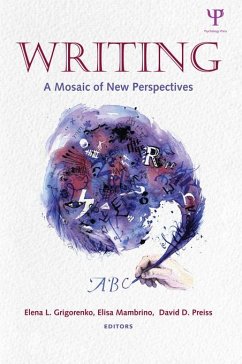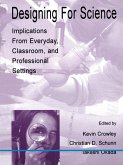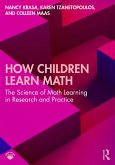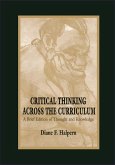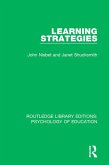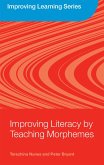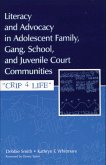Writing (eBook, ePUB)
A Mosaic of New Perspectives
Redaktion: Grigorenko, Elena L.; Preiss, David D.; Mambrino, Elisa
43,95 €
43,95 €
inkl. MwSt.
Sofort per Download lieferbar

22 °P sammeln
43,95 €
Als Download kaufen

43,95 €
inkl. MwSt.
Sofort per Download lieferbar

22 °P sammeln
Jetzt verschenken
Alle Infos zum eBook verschenken
43,95 €
inkl. MwSt.
Sofort per Download lieferbar
Alle Infos zum eBook verschenken

22 °P sammeln
Writing (eBook, ePUB)
A Mosaic of New Perspectives
Redaktion: Grigorenko, Elena L.; Preiss, David D.; Mambrino, Elisa
- Format: ePub
- Merkliste
- Auf die Merkliste
- Bewerten Bewerten
- Teilen
- Produkt teilen
- Produkterinnerung
- Produkterinnerung

Bitte loggen Sie sich zunächst in Ihr Kundenkonto ein oder registrieren Sie sich bei
bücher.de, um das eBook-Abo tolino select nutzen zu können.
Hier können Sie sich einloggen
Hier können Sie sich einloggen
Sie sind bereits eingeloggt. Klicken Sie auf 2. tolino select Abo, um fortzufahren.

Bitte loggen Sie sich zunächst in Ihr Kundenkonto ein oder registrieren Sie sich bei bücher.de, um das eBook-Abo tolino select nutzen zu können.
This book captures the diversity and richness of writing as it relates to different forms of abilities, skills, competencies, and expertise. It is an invaluable resource for researchers interested in language and cognition, and also educators and clinicians.
- Geräte: eReader
- mit Kopierschutz
- eBook Hilfe
- Größe: 16.56MB
Andere Kunden interessierten sich auch für
![Designing for Science (eBook, ePUB) Designing for Science (eBook, ePUB)]() Designing for Science (eBook, ePUB)24,95 €
Designing for Science (eBook, ePUB)24,95 €![How Children Learn Math (eBook, ePUB) How Children Learn Math (eBook, ePUB)]() Nancy KrasaHow Children Learn Math (eBook, ePUB)45,95 €
Nancy KrasaHow Children Learn Math (eBook, ePUB)45,95 €![Critical Thinking Across the Curriculum (eBook, ePUB) Critical Thinking Across the Curriculum (eBook, ePUB)]() Diane F. HalpernCritical Thinking Across the Curriculum (eBook, ePUB)45,95 €
Diane F. HalpernCritical Thinking Across the Curriculum (eBook, ePUB)45,95 €![Learning Strategies (eBook, ePUB) Learning Strategies (eBook, ePUB)]() John NisbetLearning Strategies (eBook, ePUB)34,95 €
John NisbetLearning Strategies (eBook, ePUB)34,95 €![Improving Literacy by Teaching Morphemes (eBook, ePUB) Improving Literacy by Teaching Morphemes (eBook, ePUB)]() Terezinha NunesImproving Literacy by Teaching Morphemes (eBook, ePUB)50,95 €
Terezinha NunesImproving Literacy by Teaching Morphemes (eBook, ePUB)50,95 €![Teachers in Control (eBook, ePUB) Teachers in Control (eBook, ePUB)]() Martin PowellTeachers in Control (eBook, ePUB)15,95 €
Martin PowellTeachers in Control (eBook, ePUB)15,95 €![Literacy and Advocacy in Adolescent Family, Gang, School, and Juvenile Court Communities (eBook, ePUB) Literacy and Advocacy in Adolescent Family, Gang, School, and Juvenile Court Communities (eBook, ePUB)]() Debra SmithLiteracy and Advocacy in Adolescent Family, Gang, School, and Juvenile Court Communities (eBook, ePUB)20,95 €
Debra SmithLiteracy and Advocacy in Adolescent Family, Gang, School, and Juvenile Court Communities (eBook, ePUB)20,95 €-
-
-
This book captures the diversity and richness of writing as it relates to different forms of abilities, skills, competencies, and expertise. It is an invaluable resource for researchers interested in language and cognition, and also educators and clinicians.
Dieser Download kann aus rechtlichen Gründen nur mit Rechnungsadresse in A, B, BG, CY, CZ, D, DK, EW, E, FIN, F, GR, HR, H, IRL, I, LT, L, LR, M, NL, PL, P, R, S, SLO, SK ausgeliefert werden.
Produktdetails
- Produktdetails
- Verlag: Taylor & Francis eBooks
- Seitenzahl: 505
- Erscheinungstermin: 4. Mai 2012
- Englisch
- ISBN-13: 9781136668913
- Artikelnr.: 38272440
- Verlag: Taylor & Francis eBooks
- Seitenzahl: 505
- Erscheinungstermin: 4. Mai 2012
- Englisch
- ISBN-13: 9781136668913
- Artikelnr.: 38272440
- Herstellerkennzeichnung Die Herstellerinformationen sind derzeit nicht verfügbar.
Dr. Elena L. Grigorenko received her Ph.D. in general psychology from Moscow State University, Russia, and her Ph.D. in developmental psychology and genetics from Yale University, USA. Currently, Dr. Grigorenko is an Associate Professor of Child Studies, Psychology, and Epidemiology and Public Health at Yale, and Adjunct Professor of Psychology at Columbia University and Moscow State University (Russia). Dr. Grigorenko has published more than 300 peer-reviewed articles, book chapters, and books. She has received multiple professional awards for her work and received funding for her research from the NIH, NSF, DOE, USAID, Cure Autism Now, the Foundation for Child Development, the American Psychological Foundation, and other federal and private sponsoring organizations. Dr. Elisa Mambrino is a licensed psychologist who received her Ph.D. in School Psychology from Columbia University Teachers College. In the course of this doctoral program, which is accredited by the American Psychological Association (APA), Dr. Mambrino completed an APA-accredited Pre-doctoral Internship in Clinical Neuropsychology and Rehabilitation Psychology at Mount Sinai Hospital and Mount Sinai School of Medicine. She then completed both the Marie Kessel Postdoctoral Fellowship at the Columbia University College of Physicians and Surgeons and a Postdoctoral Fellowship at the Yale University School of Medicine's Child Study Center. Dr. Mambrino also has a Master of Science degree from the Columbia University Graduate School of Journalism. Dr. David D. Preiss is an Associate Professor at the Escuela de Psicologia of the Pontificia Universidad Catolica de Chile. He received his Ph.D. in cognitive psychology from Yale University, which he attended as a Fulbright Scholar. At the Pontificia Universidad Católica de Chile, he is affiliated with the Measurement Center MIDE UC and the Center for Research on Educational Policy and Practice. His research includes topics such as culture and instruction, creativity and writing processes, and the cognitive consequences of technology. He co-edited with Robert J. Sternberg Intelligence and Technology: The Impact of Tools on the Nature and Development of Human Abilities (Erlbaum, 2005) and Innovations in Educational Psychology: Perspectives in Teaching, Learning and Human Development (Springer Publishing Company, 2010). David Preiss' research initiatives have been funded by diverse grants from agencies and programs such as FONDECYT, FONDAP, FONDEF, FONIDE and Fundación Andes.
D.D. Preiss
E. Mambrino
E.L. Grigorenko
Preface. Part 1. The Origins of Writing. D. Schmandt-Besserat
Tokens as Precursors of Writing. A. Lock
M. Gers
The Cultural Evolution of Written Language and Its Effects: A Darwinian Process from Prehistory to The Modern Day. D. Olson
Language
Literacy and Mind: The Literacy Hypothesis. Part 2. Writing and Human Development. J. Zins
S.R. Hooper
The Inter-Relationship of Child Development and Written Language Development. V.W. Berninger
L. Chanqouy
What Writing Is and How It Changes Across Early and Middle Childhood Development: A Multi-Disciplinary Perspective. T.L. Richards
V.W. Berninger
M. Fayol
The Writing Brain of Normal Child Writers and Children with Writing Disabilities: Generating Ideas and Transcribing Them through the Orthographic Loop. Part 3. Working Memory and Expertise in Writing. R.T. Kellogg
A.P. Whiteford
The Development of Writing Expertise. T. Olive
Writing and Working Memory: A Summary of Theories and Findings. M. Fayol
J.N. Foulin
S. Maggio
B. Lété
Towards a Dynamic Approach of How Children and Adults Manage Text Production. D.L. Coker
Jr.
Descriptive Writing. Part 4. The Teaching of Writing. M. Chuy
M. Scardamalia
C. Bereiter
Development of Writing through Knowledge Building: Theoretical and Empirical Bases. J. Randi
T. Newman
L. Jarvin
Creative Writing as Assessment of Content. C.R. Fallahi
Improving the Writing Skills of College Students. J.S. Hedgcock
Second Language Writing Processes Among Adolescent and Adult Learners. Part 5. Creativity and Emotions in Writing. J. Piirto
Themes in the Lives of Creative Writers. J.C. Kaufman
J.D. Sexton
A.E. White
The Creative Writer and Mental Health: The Importance of Domains and Style. M. Tan
J. Randi
B. Barbot
C. Levenson
L. Friedlaender
E.L. Grigorenko
Seeing
Connecting
Writing: Developing Creativity and Narrative Writing in Children. P. Smagorinsky
E.A. Daigle
The Role of Affect in Students' Writing for School. Part 6. Disorder of Written Language: Diagnostic Criteria
Prevalence
and Biological Bases. A. Ardila
Neuropsychology of Writing. E. Mambrino
Written Expression's Neuropsychological Nexus (WENN): A Working Clinical Theory. J. Reich
E.L. Grigorenko
The Effect of Language and Orthography On Writing Disabilities and the Necessity for Cross-Linguistic Research. M. Leung
S. Law. R. Fung
H. Lui
B.S. Weekes
A Model of Writing Chinese Characters: Data From Acquired Dysgraphia and Writing Development. Part 7. The Diagnosis and Assessment of Writing as a Skill and a Competence. J. Lee
L. Stankov
Large-Scale Writing Assessment: New Approaches Adopted In the National Assessment of Educational Progress (NAEP). J. Manzi
P. Flotts
D.D. Preiss
Design of a College-Level Test of Written Communication: Theoretical and Methodological Challenges. Part 8. Testimonials. R. Couch
Burning Down the House: Ethics and Reception in Poetry Translation. J. Felstiner
Bringing Redemption to the World: A Translation Sampler. A. Jeftanovic
A Narrator's Testimony Between Reading
Writing
and Displacements. G.J. Rose
The Story Behind My Being A Writer. R.J. Sternberg
Twelve Hundred Publications Later: Reflections on a Career of Writing in Psychology.
E. Mambrino
E.L. Grigorenko
Preface. Part 1. The Origins of Writing. D. Schmandt-Besserat
Tokens as Precursors of Writing. A. Lock
M. Gers
The Cultural Evolution of Written Language and Its Effects: A Darwinian Process from Prehistory to The Modern Day. D. Olson
Language
Literacy and Mind: The Literacy Hypothesis. Part 2. Writing and Human Development. J. Zins
S.R. Hooper
The Inter-Relationship of Child Development and Written Language Development. V.W. Berninger
L. Chanqouy
What Writing Is and How It Changes Across Early and Middle Childhood Development: A Multi-Disciplinary Perspective. T.L. Richards
V.W. Berninger
M. Fayol
The Writing Brain of Normal Child Writers and Children with Writing Disabilities: Generating Ideas and Transcribing Them through the Orthographic Loop. Part 3. Working Memory and Expertise in Writing. R.T. Kellogg
A.P. Whiteford
The Development of Writing Expertise. T. Olive
Writing and Working Memory: A Summary of Theories and Findings. M. Fayol
J.N. Foulin
S. Maggio
B. Lété
Towards a Dynamic Approach of How Children and Adults Manage Text Production. D.L. Coker
Jr.
Descriptive Writing. Part 4. The Teaching of Writing. M. Chuy
M. Scardamalia
C. Bereiter
Development of Writing through Knowledge Building: Theoretical and Empirical Bases. J. Randi
T. Newman
L. Jarvin
Creative Writing as Assessment of Content. C.R. Fallahi
Improving the Writing Skills of College Students. J.S. Hedgcock
Second Language Writing Processes Among Adolescent and Adult Learners. Part 5. Creativity and Emotions in Writing. J. Piirto
Themes in the Lives of Creative Writers. J.C. Kaufman
J.D. Sexton
A.E. White
The Creative Writer and Mental Health: The Importance of Domains and Style. M. Tan
J. Randi
B. Barbot
C. Levenson
L. Friedlaender
E.L. Grigorenko
Seeing
Connecting
Writing: Developing Creativity and Narrative Writing in Children. P. Smagorinsky
E.A. Daigle
The Role of Affect in Students' Writing for School. Part 6. Disorder of Written Language: Diagnostic Criteria
Prevalence
and Biological Bases. A. Ardila
Neuropsychology of Writing. E. Mambrino
Written Expression's Neuropsychological Nexus (WENN): A Working Clinical Theory. J. Reich
E.L. Grigorenko
The Effect of Language and Orthography On Writing Disabilities and the Necessity for Cross-Linguistic Research. M. Leung
S. Law. R. Fung
H. Lui
B.S. Weekes
A Model of Writing Chinese Characters: Data From Acquired Dysgraphia and Writing Development. Part 7. The Diagnosis and Assessment of Writing as a Skill and a Competence. J. Lee
L. Stankov
Large-Scale Writing Assessment: New Approaches Adopted In the National Assessment of Educational Progress (NAEP). J. Manzi
P. Flotts
D.D. Preiss
Design of a College-Level Test of Written Communication: Theoretical and Methodological Challenges. Part 8. Testimonials. R. Couch
Burning Down the House: Ethics and Reception in Poetry Translation. J. Felstiner
Bringing Redemption to the World: A Translation Sampler. A. Jeftanovic
A Narrator's Testimony Between Reading
Writing
and Displacements. G.J. Rose
The Story Behind My Being A Writer. R.J. Sternberg
Twelve Hundred Publications Later: Reflections on a Career of Writing in Psychology.
D.D. Preiss
E. Mambrino
E.L. Grigorenko
Preface. Part 1. The Origins of Writing. D. Schmandt-Besserat
Tokens as Precursors of Writing. A. Lock
M. Gers
The Cultural Evolution of Written Language and Its Effects: A Darwinian Process from Prehistory to The Modern Day. D. Olson
Language
Literacy and Mind: The Literacy Hypothesis. Part 2. Writing and Human Development. J. Zins
S.R. Hooper
The Inter-Relationship of Child Development and Written Language Development. V.W. Berninger
L. Chanqouy
What Writing Is and How It Changes Across Early and Middle Childhood Development: A Multi-Disciplinary Perspective. T.L. Richards
V.W. Berninger
M. Fayol
The Writing Brain of Normal Child Writers and Children with Writing Disabilities: Generating Ideas and Transcribing Them through the Orthographic Loop. Part 3. Working Memory and Expertise in Writing. R.T. Kellogg
A.P. Whiteford
The Development of Writing Expertise. T. Olive
Writing and Working Memory: A Summary of Theories and Findings. M. Fayol
J.N. Foulin
S. Maggio
B. Lété
Towards a Dynamic Approach of How Children and Adults Manage Text Production. D.L. Coker
Jr.
Descriptive Writing. Part 4. The Teaching of Writing. M. Chuy
M. Scardamalia
C. Bereiter
Development of Writing through Knowledge Building: Theoretical and Empirical Bases. J. Randi
T. Newman
L. Jarvin
Creative Writing as Assessment of Content. C.R. Fallahi
Improving the Writing Skills of College Students. J.S. Hedgcock
Second Language Writing Processes Among Adolescent and Adult Learners. Part 5. Creativity and Emotions in Writing. J. Piirto
Themes in the Lives of Creative Writers. J.C. Kaufman
J.D. Sexton
A.E. White
The Creative Writer and Mental Health: The Importance of Domains and Style. M. Tan
J. Randi
B. Barbot
C. Levenson
L. Friedlaender
E.L. Grigorenko
Seeing
Connecting
Writing: Developing Creativity and Narrative Writing in Children. P. Smagorinsky
E.A. Daigle
The Role of Affect in Students' Writing for School. Part 6. Disorder of Written Language: Diagnostic Criteria
Prevalence
and Biological Bases. A. Ardila
Neuropsychology of Writing. E. Mambrino
Written Expression's Neuropsychological Nexus (WENN): A Working Clinical Theory. J. Reich
E.L. Grigorenko
The Effect of Language and Orthography On Writing Disabilities and the Necessity for Cross-Linguistic Research. M. Leung
S. Law. R. Fung
H. Lui
B.S. Weekes
A Model of Writing Chinese Characters: Data From Acquired Dysgraphia and Writing Development. Part 7. The Diagnosis and Assessment of Writing as a Skill and a Competence. J. Lee
L. Stankov
Large-Scale Writing Assessment: New Approaches Adopted In the National Assessment of Educational Progress (NAEP). J. Manzi
P. Flotts
D.D. Preiss
Design of a College-Level Test of Written Communication: Theoretical and Methodological Challenges. Part 8. Testimonials. R. Couch
Burning Down the House: Ethics and Reception in Poetry Translation. J. Felstiner
Bringing Redemption to the World: A Translation Sampler. A. Jeftanovic
A Narrator's Testimony Between Reading
Writing
and Displacements. G.J. Rose
The Story Behind My Being A Writer. R.J. Sternberg
Twelve Hundred Publications Later: Reflections on a Career of Writing in Psychology.
E. Mambrino
E.L. Grigorenko
Preface. Part 1. The Origins of Writing. D. Schmandt-Besserat
Tokens as Precursors of Writing. A. Lock
M. Gers
The Cultural Evolution of Written Language and Its Effects: A Darwinian Process from Prehistory to The Modern Day. D. Olson
Language
Literacy and Mind: The Literacy Hypothesis. Part 2. Writing and Human Development. J. Zins
S.R. Hooper
The Inter-Relationship of Child Development and Written Language Development. V.W. Berninger
L. Chanqouy
What Writing Is and How It Changes Across Early and Middle Childhood Development: A Multi-Disciplinary Perspective. T.L. Richards
V.W. Berninger
M. Fayol
The Writing Brain of Normal Child Writers and Children with Writing Disabilities: Generating Ideas and Transcribing Them through the Orthographic Loop. Part 3. Working Memory and Expertise in Writing. R.T. Kellogg
A.P. Whiteford
The Development of Writing Expertise. T. Olive
Writing and Working Memory: A Summary of Theories and Findings. M. Fayol
J.N. Foulin
S. Maggio
B. Lété
Towards a Dynamic Approach of How Children and Adults Manage Text Production. D.L. Coker
Jr.
Descriptive Writing. Part 4. The Teaching of Writing. M. Chuy
M. Scardamalia
C. Bereiter
Development of Writing through Knowledge Building: Theoretical and Empirical Bases. J. Randi
T. Newman
L. Jarvin
Creative Writing as Assessment of Content. C.R. Fallahi
Improving the Writing Skills of College Students. J.S. Hedgcock
Second Language Writing Processes Among Adolescent and Adult Learners. Part 5. Creativity and Emotions in Writing. J. Piirto
Themes in the Lives of Creative Writers. J.C. Kaufman
J.D. Sexton
A.E. White
The Creative Writer and Mental Health: The Importance of Domains and Style. M. Tan
J. Randi
B. Barbot
C. Levenson
L. Friedlaender
E.L. Grigorenko
Seeing
Connecting
Writing: Developing Creativity and Narrative Writing in Children. P. Smagorinsky
E.A. Daigle
The Role of Affect in Students' Writing for School. Part 6. Disorder of Written Language: Diagnostic Criteria
Prevalence
and Biological Bases. A. Ardila
Neuropsychology of Writing. E. Mambrino
Written Expression's Neuropsychological Nexus (WENN): A Working Clinical Theory. J. Reich
E.L. Grigorenko
The Effect of Language and Orthography On Writing Disabilities and the Necessity for Cross-Linguistic Research. M. Leung
S. Law. R. Fung
H. Lui
B.S. Weekes
A Model of Writing Chinese Characters: Data From Acquired Dysgraphia and Writing Development. Part 7. The Diagnosis and Assessment of Writing as a Skill and a Competence. J. Lee
L. Stankov
Large-Scale Writing Assessment: New Approaches Adopted In the National Assessment of Educational Progress (NAEP). J. Manzi
P. Flotts
D.D. Preiss
Design of a College-Level Test of Written Communication: Theoretical and Methodological Challenges. Part 8. Testimonials. R. Couch
Burning Down the House: Ethics and Reception in Poetry Translation. J. Felstiner
Bringing Redemption to the World: A Translation Sampler. A. Jeftanovic
A Narrator's Testimony Between Reading
Writing
and Displacements. G.J. Rose
The Story Behind My Being A Writer. R.J. Sternberg
Twelve Hundred Publications Later: Reflections on a Career of Writing in Psychology.
